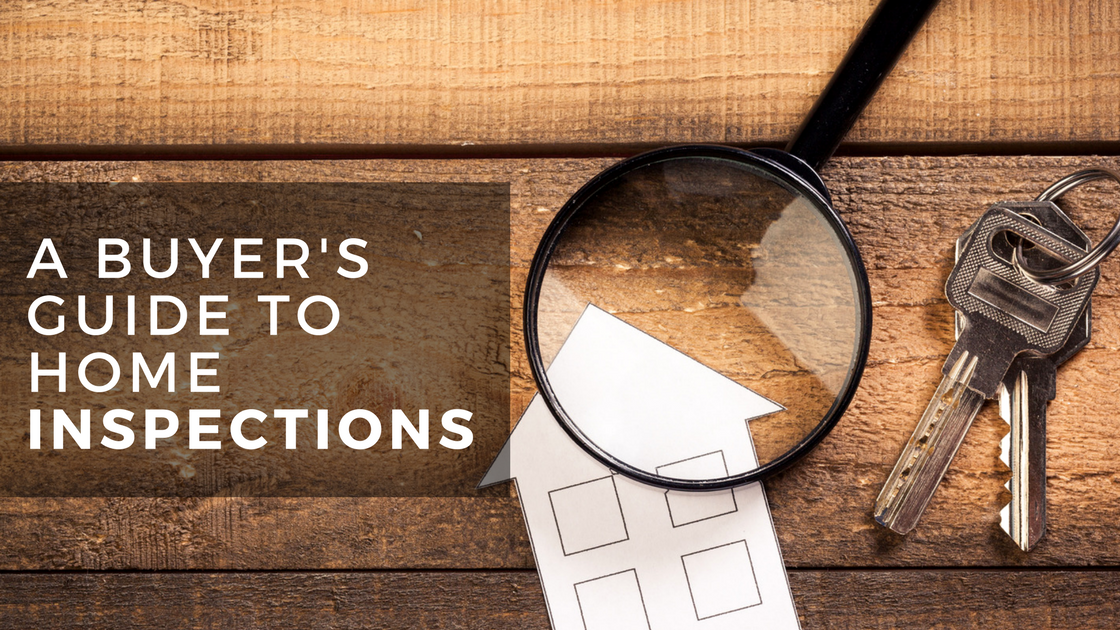
A Buyer's Guide to Home Inspections
You have picked out your new home and have a contract to purchase it. What should you do next? One of the most important steps in the home-buying process is the home inspection. Inspections of the property will enable you better understand the condition of the property you are planning to purchase, so that you as a buyer aren’t caught unaware by . It is critical that you hire an experienced professional to do a thorough inspection of the home. You should also consider additional specialty inspections depending on the features of your home.
Step 1: Locating a Home Inspector
The first step in having a home inspection done on a property is to select an inspector and schedule the home inspection. Maybe you know a home inspector or have used one before, but most people don’t. In such a case, your real estate agent will be able to help in sourcing a reputable home inspector to survey your home. The Dylan Snyder Real Estate Group has years of experience with many home inspectors and can offer you guidance when it is time to make this decision.
As soon as you have a contract on your home, go ahead and select a home inspector and schedule the inspection. It may take a 3–7 days to get an appointment for someone to do it and you have limited time on the contract to get this completed. You will likely want to schedule the home inspection at a time that you can be there.
The price of a home inspection is based on the size and age of the home, as well as any special inspection items such as a pool, sprinkler system, termites and more that need to be inspected. Inspections average between $400-$600 depending on the features of the property. Ordering a home inspection is not the time to go for the cheapest option. Saving $25 now on a home inspection may cost you thousands later if issues are discovered after closing that could have been missed.
Step 2: Performing the Home Inspection
Home inspectors will do a very thorough investigation of your property, focusing on specific criteria to determine if it is functioning for the purpose it was intended. Here are some of the areas an inspector will investigate.
- Roof
- Roof Structure
- Attic
- Exterior Construction
- Foundation
- Exterior Structures such as porches, decks, patios and carports
- HVAC systems
- Water Heaters
- Electrical Equipment
- Plumbing Systems
- Appliances Included in the Sale
- Interior Walls and Floors
Remember that an inspection can only reveal so much. Systems that can’t be accessed or visibly inspected won’t be checked.
What if your home has special features that an inspector isn’t qualified to inspect? There are specialty inspections you may want to consider if you need additional information on certain parts of your home. Here are some additional types of home inspections you may want to consider depending the property. Your agent and home inspector can give you advice on which additional inspections might be beneficial.
- Pest Inspection. This inspection will check for current or previous termite infestations.
- Radon Inspection. This inspection will check the radon levels within your home to make sure there are no issues.
- Well Inspection. If your property has a well, this inspection can determine the well’s integrity and safety for continued use.
- Septic Inspection. If your property has a septic tank, this inspection will check to ensure the tank is up to code and functioning properly.
If you attend the inspection, the inspector will be able to show you things they found, which can make the scope of any issues uncovered easier to understand. Because time is of the essence with regards to your investigation of the property, you don’t have to waste. If you plan to attend the home inspection, please realize it is likely to take 3-4 hours to complete.
Step 3: Reviewing the Inspection Report
After the inspection is complete, the home inspector will prepare a report for you outlining the findings. Now that you have your report back from your inspection(s), it is time to review everything and decide if there is anything that changes your opinion of the property or significantly alters the value due to the condition.
As soon as you receive the report, take time to review it thoroughly. This is the time to consider if there are any repairs you want to ask the seller to make, if you would like to back out of the contract, or if you would like to renegotiate the purchase price.
Don’t expect a perfection inspection report. All homes, including new homes, have issues. If there are major issues that come up in the inspection, you have a couple options. You may do nothing, request the seller repair some items, ask the seller to renegotiate the price or even decide not to purchase the home. While some issues may be insignificant like a leaky faucet, others may me more involved like a structural issue of roof leak. Weigh your options and decide what is best for you.
What if you are purchasing a new home? We still highly recommend you get a home inspection. You may choose to do so once the home is complete or at different phases of construction so that certain steps of the building process can be reviewed. Either way, a home inspection on a new home is just as important as a resale home. Things are missed, and an inspection is the best way to protect yourself before you close on the home.
Buying a home is an extensive process with multiple steps and one of the largest financial investments many people make in their entire lives. Get some security in your home purchase by having a thorough home inspection done before buying a home.


